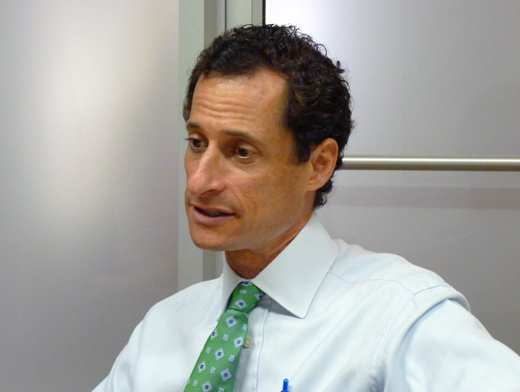EXCLUSIVE: Weiner: Down in the polls, but not out
In Brooklyn Eagle exclusive, candidate stresses the issues

In an interview with the Brooklyn Eagle staff on Wednesday, mayoral candidate Anthony Weiner frankly acknowledged the impact his recent “sexting” scandal has had on his campaign. However, he insisted it’s “in the rear-view mirror” and spent most of his time discussing his campaign issues – which most of the major media have ignored.
Many people remember his years in Congress mainly for his very vocal advocacy of “Medicare for All.” Those who supported his position will be interested to know that he wants the city to sponsor a city-administered single-payer plan for city employees, retirees and uninsured immigrant workers. This plan, he says, could also be offered as part of the Affordable Care Act’s “health exchanges.”
Rare among Democrats, he feels that Obamacare, although “better than the status quo,” doesn’t go far enough. “The employee-based model of insurance is a mistake. It’s taking tax dollars and giving them to private insurers,” he told the Eagle.
